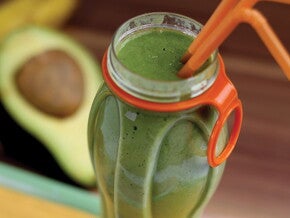
Baby's first year: Higher nutritional needs than adults
Baby's first year: Higher nutritional needs than adults
Babies have small tummies, but big nutritional needs because their bodies are rapidly growing in the first years of life.
Babies have small tummies, but big nutritional needs because their bodies are rapidly growing in the first years of life.
As their bellies are smaller than those of adults, they need food that is relatively rich in energy and nutrients (e.g. fortified infant cereals).
Customer reviews
0
Ratings
-
5
0
-
4
0
-
3
0
-
2
0
-
1
0
Related articles

Development of baby: Months 10-12
“Come on, make Mama (or daddy, of course) proud.” This has likely already crossed your baby’s mind without you even saying it. His desire to please you is strengthening along with your bond.
4 mins to read

Did you Know? - Nutrition Program
Infants and young toddlers can naturally regulate their energy intake. The way they are fed is an important experience that can influence their intake and food choices later in life.
1 min to read

Childproofing Your Home: Safety first!
Your house is about to become home to all kinds of firsts for your new family addition. Make sure everyone can share every special moment in a safe environment where your baby can thrive!
6 mins to read

Ready for finger feeding?
At around 8 months old, your baby will be able to grasp and pick up small pieces of food.
2 mins to read

Your baby grows by leaps and bounds
Follow month-by-month
1 min to read

Introducing Solids To Your Baby - A Guide
Your baby’s around 6 months old and she’s probably showing signs of being ready for her first bites of food. This means it may be time to complement breast milk with solid foods.
5 mins to read

Baby food nutrition for your 8-12 months
Take this quiz and test your nutrition knowledge!
1 min to read

Your guide to starting solids
Congratulations on reaching this exciting milestone and have fun feeding your baby his first foods.
7 mins to read

Make every bite count for baby’s healthy growth and development
Starting your little on solid foods is quite a milestone! Since his tummy is so small, and breastmilk is the main source of his nutrition, at 6 months of age he will only be taking small tast
4 mins to read

Baby Teething Signs and Relief
Teething begins at different times for different babies. Most babies start by 6 months. The first tooth usually appears in the middle of the lower jaw, known as the bottom front teeth.
2 mins to read

Introducing baby to complementary foods
After six months of age, baby’s evolving needs call for the introduction of appropriate complementary foods
1 min to read

Baby's most nutritious food choices
A quiz for moms of 6 to 7-month-olds
1 min to read

Babies Growth and Development: Months 7-9
She’s here, she’s there, she’s everywhere! At least she wants to be, and wants to get there on her own.
4 mins to read

Your 6 to 12 month old’s fullness & hunger cues
At this stage, your baby’s menu may have expanded to include more cereals and baby food varieties
2 mins to read

Feeling lonely in a hyperconnected World?
Bringing a child into the world can foster a deep sense of collaboration between the expecting parents, but once the baby arrives, the realities of
6 mins to read

Baby food allergies Vs intolerances—things to consider
Baby allergies and intolerances can develop at any time. An allergy is our immune system’s reaction to a substance it thinks is harmful.

Parenting Guilt
Raising a baby doesn’t come with a handbook, but young parents often feel guilty that they’re lacking the “expert parenting skills” they see around them.
5 mins to read

Making Safe Food Choices for Your Baby
By now you've noticed that everything seems to make its way into your little one’s mouth. Once he’s able to grasp small objects, eating those little goodies is exactly what he'll try to do
5 mins to read

Emotional Roller Coaster
After all the excitement of planning for the baby picking names, choosing little outfits and packing all the essentials for delivery, most new parents are caught completely off guard by the harsh r
3 mins to read